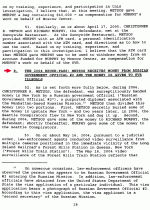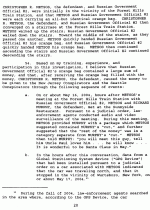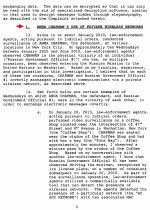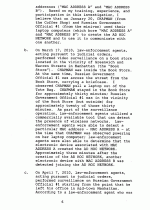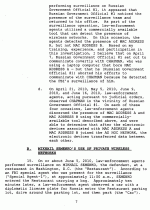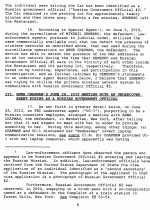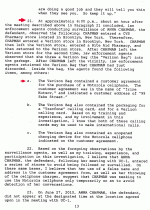FBI Busts Russian Spies
Feds: Agents caught using old school, high-tech spycraft

View Document
JUNE 28--A decade-long FBI probe into a ring of covert Russian agents living and working in the U.S. resulted yesterday in the arrest of ten spies on conspiracy and money laundering charges.
Criminal complaints filed today in U.S. District Court in New York do not detail the information relayed by the covert agents to handlers with the Russian Federation's Moscow-based intelligence service. But the court filings provide a remarkable blow-by-blow of the FBI's extensive probe of the Russian agents, known as "illegals," whose goal, investigators allege, was to "become sufficiently 'Americanized' such that they can gather information about the United States for Russia" and recruit sources from "United States policy-making circles."
As seen here, the Russian agents employed spycraft both prosaic and high-tech. As agents watched one day in May 2004, one agent, Christopher Metsos, "converged" with an unnamed Russian government official on the staircase of a Queens train station. The Russians were "each carrying an all-but identical orange bag." As they passed on the staircase, the Russians exchanged bags. FBI agents believe that the bag given to Metsos by the government official contained "a large sum of money," which was then distributed to Russian spies working in New Jersey and Seattle.
The complaints also describe how suspect Anna Chapman this year traveled around Manhattan, laptop in tow, exchanging information wirelessly with a Russian government official. Chapman allegedly used a "private wireless network" that was accessed by the government official when the Russian was in Chapman's vicinity. In January, while Chapman was positioned in a Times Square Starbucks, the government official allegedly drove by in a minivan and communicated with her over the private network. In mid-March, Chapman was inside a Barnes & Noble outlet in lower Manhattan when surveillance agents spotted the Russian official in the book store's vicinity. On both occasions, agents were able to detect two devices joined on a private wireless network.
On Saturday, after Chapman was contacted by an FBI undercover agent posing as a Russian consulate employee, she went to a Verizon store in Brooklyn and purchased a new Motorola cell phone. Apparently concerned that she was being monitored electronically, Chapman used the name "Irine Kutsov" on a customer agreement, which listed her address as "99 Fake Street." (7 pages)
UPDATE: Glamour photos of covert Russian spy here

